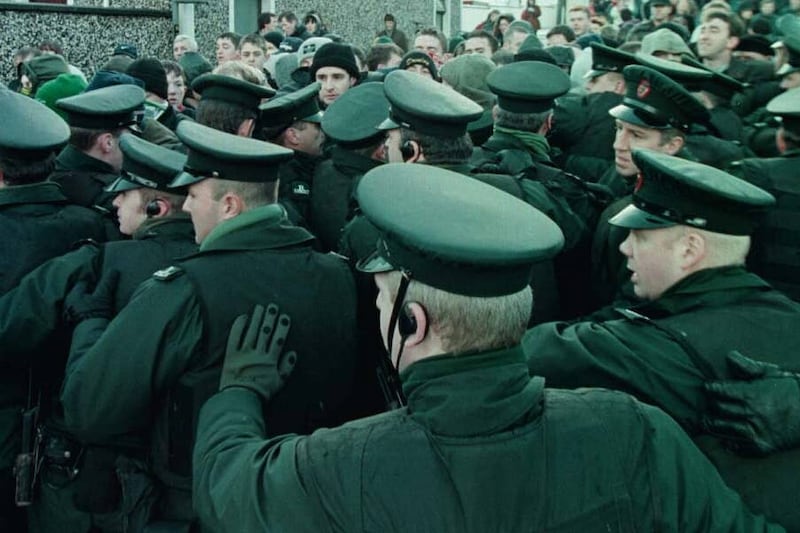August 31 1974
The general election draws near: Mr Michael Foot has not said it is not fixed for October 3; Mr Enoch Powell has resumed his courtship of the disunited Ulster Unionists; the right-wing Tories are seeking to crack the Conservative whip on Mr Harry West’s rump.
For the English parties to these manoeuvres, the expected rewards are obvious: for Mr Powell, a safe Ulster seat and a launching pad for his attempt on the position of prime minister; for the Tory Party, an extra half-dozen MPs to troop docilely through the door of the division lobby at Westminster.
But what is there in it for the Ulster Unionist voter?
Should the election result prove to be another close-run thing, the small group of Unionist MPs will be influential only in so far as it holds the balance of power between the major parties or any combination of them.
By committing itself in advance to the Tories, it not only abandons this strategic position but may also find that it has backed a loser.
The Tories are quite willing to make use of Mr West but only after he has been dickied-up to English taste. To make him presentable he must first of all be separated from his allies, [William] Craig and [Ian] Paisley. The negotiations necessary to achieve this separation are calculated to embarrass both Mr West and Mr [Ted] Heath.
The nationalist voter may watch their wrigglings with glee but he should not be complacent about them. The internecine strife between competing groups on his own side will be watched with equal glee by his opponents, and experience shows that every splinter group on the unionist side will be matched by one on the nationalist side.
In the past the Ulster Unionists have shown an ability to close their ranks when under attack. We, on the other hand, when on the march, proved all too ready to turn our backs on the enemy in order to scatter our friends to the right and to the left.
National-minded people here are sufficiently homogeneous to be able to form a powerful political party, self-reliant, organised and with a programme of attainable ends. But if they enter the political arena they must do so wholeheartedly.








